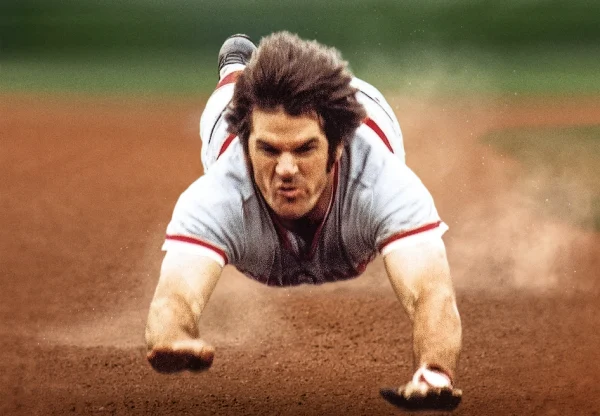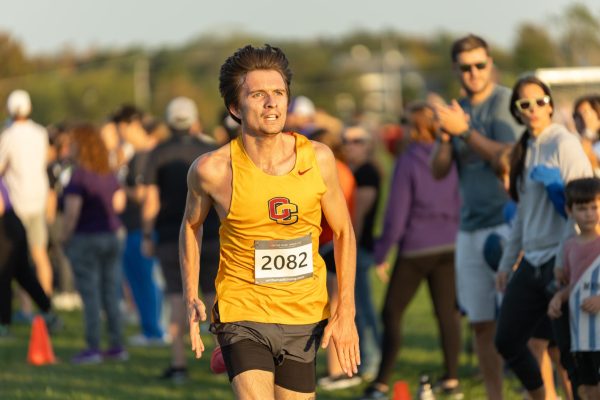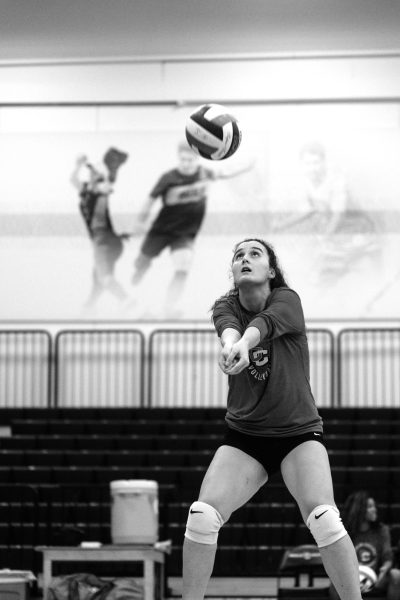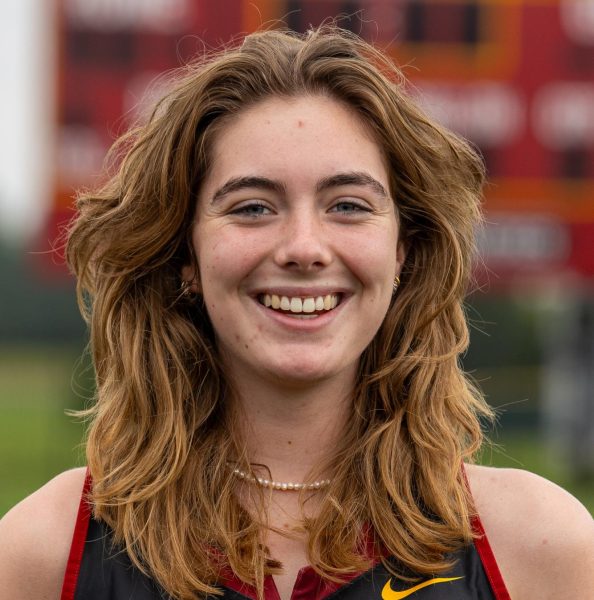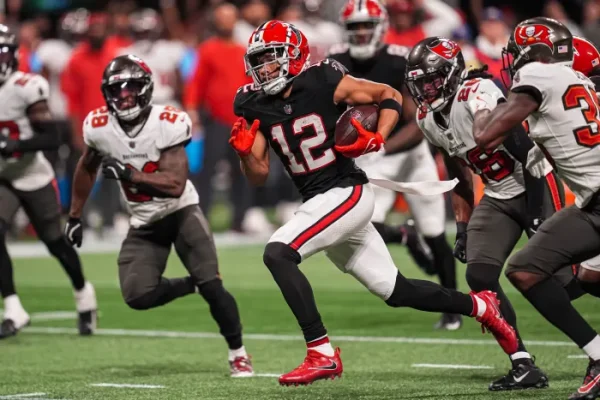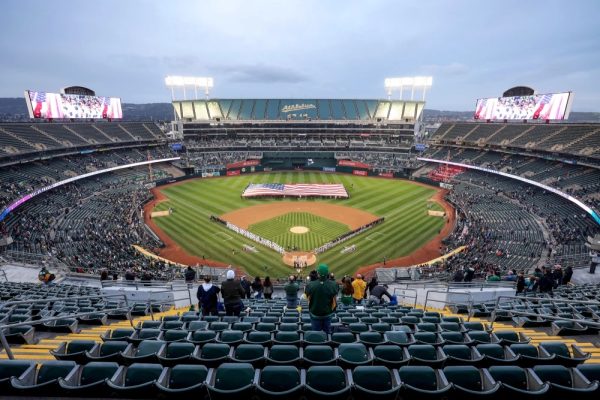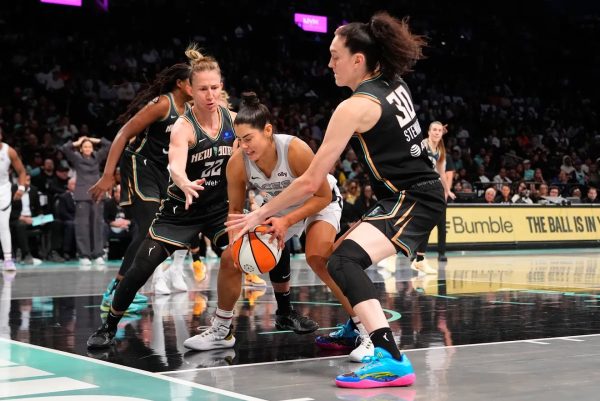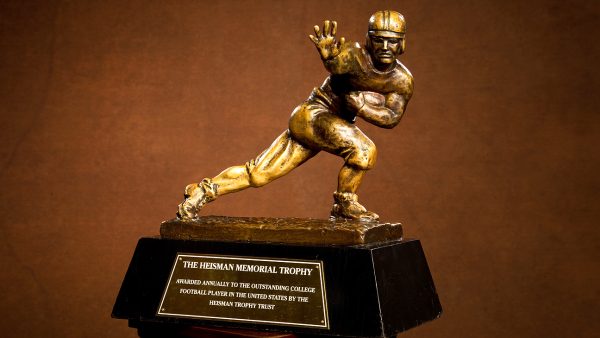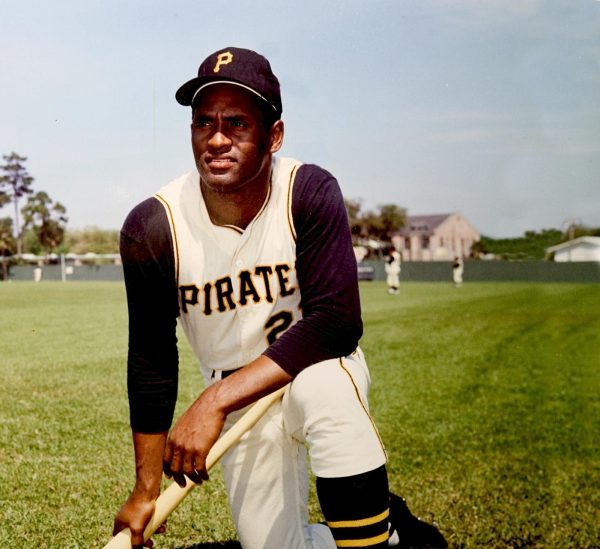Women Remain Underappreciated in Athletic World
ESPN’s annual World Fame 100 List, a definitive compilation of the world’s most famous athletes, determines its order through criteria like social media followers, yearly net-worth, and Google Trend scores. The top of last year’s list consisted of many familiar and expected names — NBA star LeBron James, tennis legend Roger Federer, and soccer greats Lionel Messi, Neymar, and Cristiano Ronaldo are all featured in the top five.
Many different sports, races, and nationalities were represented in the list; a solid representation of the make-up of the sports world within the United States and beyond. Numbers are fed into an equation, which assembles the list. However, a problem arises when you take a closer look.
On this list of the 100 most popular athletes in the entire world — according to ESPN — only 12 of them are women. Tennis champion Serena Williams leads the way, clinching the 12th spot. Unfortunately, half the women on the list don’t even make an appearance until the late 80s.
These results are quite illuminating. What we are facing is a deep-rooted problem in society that pushes the narrative that sports are for men. ESPN’s 2018 World of Fame 100 list is a clear reminder that, as far as we’ve come, we still have a long way to go until we see true gender equality in the sports world.
ESPN’s list reminded me of a recent anecdote. On Feb. 5, 2019, basketball fans were forced to say an unexpected goodbye to one of the most dominant figures in the sport. With her brief article “The Shift,” which was featured on The Players’ Tribune website, WNBA player Maya Moore announced her intention to step away from professional basketball to focus on family and faith. Moore’s dominance is nearly unmatched. LeBron James, who many consider one of the greatest basketball players of all time, was praised for winning his third NBA title in 2016. Moore, however, already has four in almost half as many years, and that’s just if we keep it stateside. If we include international play, her number of championships balloons to nine — nine rings in less than a decade. Even so, her level of excellence wasn’t highlighted by the ESPN World Fame 100.
Women have always had to fight for respect when it comes to sports. They have been barred from participating in certain sports, their accomplishments have been devalued, and they have had to prove time and time again that they deserve to be taken seriously. Strides have been made in the past 50 years thanks to policies like Title IX and the creation of leagues like the WNBA, but women’s sports still remain underfunded within the United States and beyond. Every day, women’s teams struggle to find support in a way their male counterparts never do. This is an unfortunate, unnecessary, and, honestly, disappointing truth about our society.
Athletics — particularly football — have been a large part of my life. Reflecting on all of the years I’ve devoted to sport, I’ve realized that women have played a huge role in my own athletic journey. I’ve been blessed to have a mother who has been a big part of my success as an athlete. Without her, I wouldn’t have made it to many of those practices, workouts, and camps that allowed me to develop as a player. Aside from the nuts and bolts of paying dues and carting me around, she was always a constant emotional pillar for me. Whenever a bad game or an injury got me down, she has always done everything in her power to get me back up. She has done all of this to support my athletic for over 20 years and, to an athlete, support means everything.
My first year playing football was, I assume, like many others’ in many ways. I joined a team a little late, did not know anyone, and my juvenile wishes of becoming a quarterback went unfulfilled. The coaching staff was predominantly comprised of dads and uncles who loved the game, but one coach stood out: Coach Sheila. She was the only female coach on our team and the only female coach I would ever have.
She was an inspiring coach and, at times, dominated the overwhelmingly male space. In that first year playing football, I was no good. I didn’t understand the game and couldn’t figure out why the ball was not in my hands at all times. I was unhappy, but Coach Sheila helped me through it. She got excited when I did something right, and her energy infected me. I wanted to play because I wanted to become as passionate as she was. She helped give me the confidence to become part of the team emotionally, and that’s when I found my love of the game.
My mom is back home in Atlanta. I haven’t seen or spoken to Coach Sheila in over a decade. I’ve never met Maya Moore. However, their impact and the values I’ve learned from each one of them are here with me. Each of these incredible women shaped me, not only as a person, but also as an athlete. Maya Moore was an icon, my mom was an inspiration, and Coach Sheila was an igniting force. Without them, my life would look very different.
The point of this article is not to champion Moore’s achievements or to claim that Coach Sheila was the greatest coach I’ve ever had or to focus on my own experiences as an athlete. The point of this article is to illustrate how women do so much for the sports world, whether its succeeding themselves, like Moore, or inspiring and motivating others, like Coach Sheila. They do all of these inspirational acts and everything in-between. They don’t exist on the outskirts of athletics. They are just as much interwoven into the athletic community — professional and non-professional — as any male athlete.
Women in sports deserve better recognition and support. They are athletes, coaches, and fans. Their contributions to athletics shouldn’t exist on the periphery. They should be something that we champion as a community. Sports were created to celebrate excellence, and, at the end of the day, excellence knows no gender.


